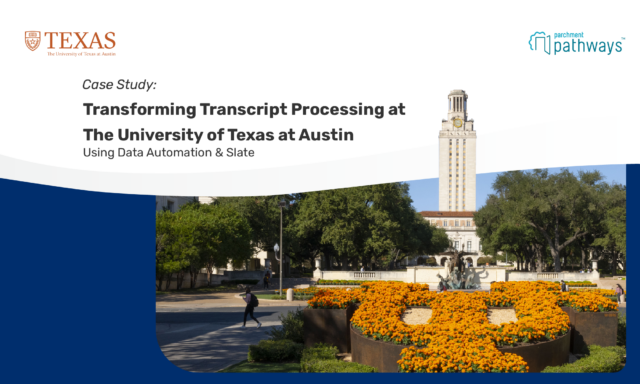The future is digital, and higher education is no exception. The expansion of new technologies within the education sector has quickly spurred alternative models of learning and skill signaling — namely, digital wallets. And, as these digital innovations make learning more accessible around the world, institutions need solutions that can help them adapt and provide an elevated learning experience.
We’re taking a closer look at digital wallets in the higher education sector and how institutions can introduce them to support students on their unique, lifelong learning journeys.
What is a digital wallet?
Essentially, a digital wallet is a place for learners and workers to store evidence of their academic or skills-based achievements across their lifetime — from verifiable credentials and digital diplomas to digital badges and more.
Why is this important?
Digital wallets give learners access to their credentials and allow them a way to showcase their skills and create advancing opportunities. Considering a report from Forbes that found more than 39 million students in the United States have attended college, but earned no degree or other credential, this is becoming increasingly essential for students to communicate the totality of their skills and abilities.
Designing the digital wallet to support unique, lifelong learning journeys
The education sector today is evolving quickly, and alternative models of education are emerging to address the demand for new skills beyond a learner’s existing knowledge — no matter where they’re at on their unique learning journey. Considering this fundamental shift in how education and skills are obtained, institutions are pursuing solutions to gather and share academic achievements.
Across a learner’s lifetime, they’ll experience education in a host of environments, and as digital solutions continue to expand, students and learners are likely to use multiple devices and technologies to demonstrate learning outcomes. As a result, digital wallets are designed for flexibility to move and send credentials between different wallets or platforms — without losing the ability to verify the information or understand it.
The advantages of digital wallets
As higher education institutions introduce digital credentialing platforms and support digital wallets, a number of key parties stand to benefit. These advantages include:
- Helping learners differentiate themselves in the education and job market: In a skills-based talent marketplace, additional learning and skill outcomes held in digital wallets allow individuals to differentiate themselves while creating opportunities for advancement.
- Supporting the display of “stackable”, interoperable digital credentials: Skills and competency-based focuses, often referred to as micro-credentials, are becoming increasingly popular and widely recognized. As a result, digital wallets satisfy the market’s need to display and demonstrate particular outcomes and skill sets from these accelerated forms of learning.
- Improving an institution’s diversity, equity and inclusion (DEI) efforts: Digital credentialing platforms ultimately benefit individuals across all ages, education levels, socioeconomic and racial/ethnic groups and industry backgrounds.
- Reducing organizational costs: According to Deloitte, digital technology helps cut the costs of processing, data collection and communication associated with administrative processes — which can make them considerably more efficient and effective.
- Elevating the overall learning experience: Leveraging digital wallets and verifiable credentials not only provides learners with more flexible, “stackable,” and shareable learning opportunities but also valuable industry skills and knowledge that empower them on their lifelong learning journey.
How Parchment can help your institution support learners with advanced digital solutions
Research from EDUCAUSE found that 32% of higher education institutions are developing a digital transformation strategy and 38% are exploring their options within the digital space. The future of higher education is digital, requiring institutions to fundamentally rethink their systems and strategies as students’ needs shift and digital ecosystems for learning emerge.
For organizations in pursuit of flexible, accessible digital solutions for verified credentials, Parchment can help. Our Parchment Award – Diploma Services, Transcript Services and Digital Badge & Certificate Services are designed to help institutions, employers and businesses issue streamlined digital credentials and support learners more effectively in the modern education sector.
To learn more about any of our innovations – old or new – please fill out the form below.
There’s always more to learn.





